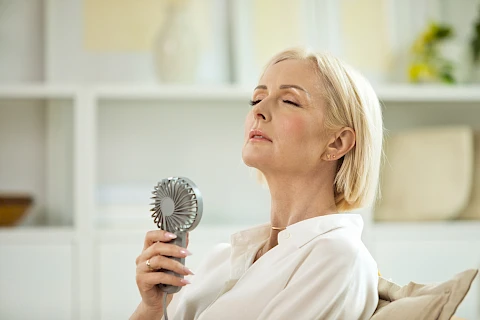
A brownout is a drop in electrical voltage, which can dim lights and affect the operation of electrical devices. It's not a full power outage, but it can still cause significant problems, especially for seniors. Preparing for these events is essential to ensure the safety and well-being of senior loved ones.
Risks for Seniors
When a brownout occurs, the reduced electricity can pose several health risks for seniors. Seniors are more susceptible to heat stress and dehydration, especially without air conditioning. It's also essential to consider the emotional and psychological impacts. The sudden change and lack of power can cause anxiety and confusion. Being prepared helps mitigate these risks and ensures a calmer experience for everyone involved.
Essential Supplies to Have on Hand
To effectively manage during a brownout, it's crucial to have the right supplies available.
- Battery-operated fans and lights: These can help keep the environment lit and cooler when electrical devices are not fully operational.
- Non-perishable food and water: Stock up on items like canned goods, granola bars, and bottled water to ensure the senior has enough to eat and drink.
- Medications and medical supplies: Make sure you have an adequate supply of all necessary medications and medical equipment.
- Communication devices: Charged cell phones and radios can help you stay informed and connected with others.
- Emergency contact list: Keep a list of important phone numbers, including doctors, family members, and emergency services.
You may want to check those items regularly to make sure your senior loved one still has everything they need.
Immediate Actions During a Brownout
Once a brownout starts, there are several immediate actions you can take to help your senior loved one.
- Keeping the senior hydrated: Offer water frequently, even if they don't feel thirsty, to prevent dehydration while the air conditioning is off.
- Ensuring proper ventilation: Open windows, if possible, to allow for airflow and reduce indoor temperature.
- Using battery-operated fans and cooling towels: These can help keep the senior's body temperature down.
- Monitoring the senior's health closely: Watch for any signs of heat stress or dehydration, such as dizziness, headaches, or confusion. Seek medical help if necessary.
Of course, if the brownout is a short-term problem, your household can often go quickly back to normal operations.
Long-term Strategies for Frequent Brownouts
For areas that experience frequent brownouts, consider some long-term strategies to better prepare for these events.
- Investing in a generator: A generator can provide backup power and keep essential devices running during a brownout.
- Creating a brownout emergency plan: Develop a clear plan outlining the steps to take during a brownout. Share this plan with the senior and other family members.
- Regularly updating emergency supplies: Check and restock supplies periodically to ensure everything is current and in good condition.
- Educating the senior on brownout procedures: Make sure the senior understands the plan and knows what to expect during a brownout to reduce anxiety.
Get to know how your loved one reacts during a brownout so you can offer the best possible support.
Get In-Home Care for Seniors
Being prepared for a brownout involves understanding the risks, having essential supplies, taking immediate actions, and implementing long-term strategies. Providing emotional support is equally important for a senior's well-being during these times. By preparing and staying vigilant, you can help ensure your senior loved one remains safe and comfortable.
For professional assistance and more information about caring for seniors, contact Senior Helpers Greeley. We offer a range of senior care services to seniors in Fort Collins, Loveland, Greeley, Wellington, and Longmont.